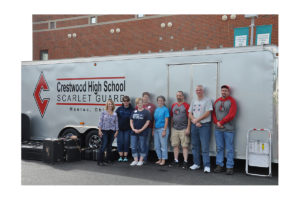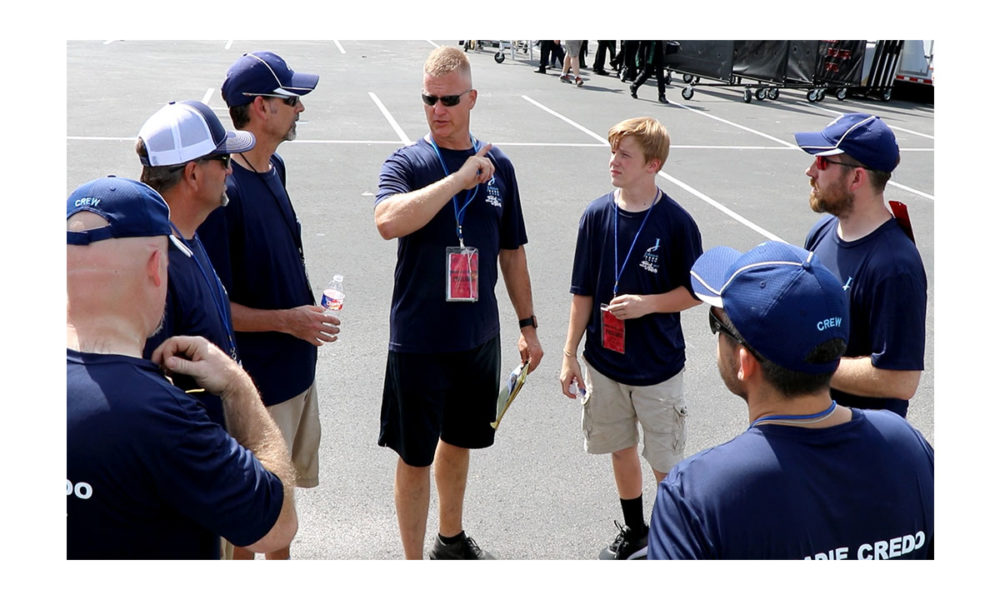With many passionate voices, band booster organizations must implement strategies to avoid conflicts among leaders and volunteers.
In volunteer-run organizations, many individuals bring their talents, past experiences, and ideas to the table. While these different personal backgrounds often lead to a strong organization, conflicts may arise when people have different opinions on how to accomplish a task. Band boosters may encounter such challenges and should be prepared to defuse or avoid them.
 Decisions by Committee
Decisions by Committee
To get started on the right foot, the Crestwood Band Boosters from Mantua, Ohio, invite new parent members to provide information about themselves. “Our members write down what they would like to help with throughout the year and what talents they have to share,” explains Maryellen Griffin, president of the organization. “This form is a great tool when forming committees and also for individually choosing members for specific needs to support an event.”
The Crestwood Boosters group has found that forming committees for each event leads to better success—and better overall satisfaction for the volunteers.
“The committee is the best method for creating a positive atmosphere for members to work toward the common goal of supporting our music students,” Griffin says. “[It] offers an opportunity for our members to choose where they would like to participate and focus their talents while avoiding conflicts with each other.”
The booster organization at Claudia Taylor Johnson (CTJ) High School in San Antonio, Texas, also encourages volunteers to participate in activities that interest them; at the same time, the board strives to avoid limiting parents to just one role. In fact, the organization recently revamped its bylaws to provide more general descriptions of the positions within the group.
“Our bylaws used to be very specific, with incredibly detailed descriptions of each specific role within our group,” says Brian Kickhoefer, past president of the CTJ Band Parent Association. “We were finding that people were being ‘pigeon-holed’ into certain positions, and some people were being held responsible for extremely large roles. The new bylaws help us divvy up the tasks and spread the responsibility. This helps prevent burnout in the higher visibility positions.”
Strong Opinions
For CTJ and almost any other booster organization, some of the positions that need the most help include equipment transportation and concessions.
“Those are the areas where some of our hardest-working parents lend their support,” Kickhoefer says. “Those are also the areas where some of our strongest personalities come through.”
Usually the volunteers with the strongest opinions are the most passionate about helping the band and the kids, Kickhoefer adds. Many parents invest a great deal of time and energy to keep things running smoothly, and they have ideas on how to improve processes. Sometimes, those ideas don’t mesh with established procedures or booster guidelines.
“The most important thing we can do to avoid conflicts in situations where several people have differing opinions is to let everyone talk, let them express themselves, and really listen to what they have to say,” Kickhoefer says. “It’s a fine line to listen to opinions and perhaps disagree with something without offending someone. We want them to feel valued, so they’ll continue to come back.”
Open and honest communication among all volunteers will keep the marching band program running smoothly, says Barb Fuelberth, president of the Spirit Lake (Iowa) Music Boosters. “We ask a lot of questions and have open, transparent discussions,” she says. “We treat each other with respect and are considerate of each other’s time and other commitments.”
Fuelberth acknowledges that sometimes minor conflicts among volunteers do arise, but such situations are addressed quickly. “The times that we start to see issues are when things are not communicated to the proper people in a timely manner, and groups of parents start to talk amongst themselves without going directly to the source, whether it be another parent, the officers, the directors, or the school administration.”
Public Recognition
Ultimately, people who devote their time want to feel appreciated. While the Spirit Lake Music Boosters do not have a formal recognition program in place, the board regularly acknowledges parent volunteers at booster meetings, in email blasts, and in other public settings, Fuelberth says.
The boosters at Crestwood make a point of thanking parent volunteers during and after each event, Griffin says.
A more formal volunteer recognition event takes place at the CTJ marching band end-of-season banquet. Kickhoefer says the boosters have struggled throughout the years to find an ideal way to recognize parents who contribute regularly without alienating those who have valid reasons for not volunteering as much as others.
“The way we handle volunteer recognition is to honor the outgoing senior parents who have helped throughout the years,” he explains. “On occasion we may recognize someone who has really gone above and beyond by presenting them with a shako and a plaque.”
Kickhoefer emphasizes that you really can’t thank parents enough for the hours they put in. “I think every booster organization realizes that 20 percent of the parents are doing 80 percent of the work,” he says. “We make a point to thank the people who come out to help at our events by reading [names] at the end of every monthly parent meeting.”


